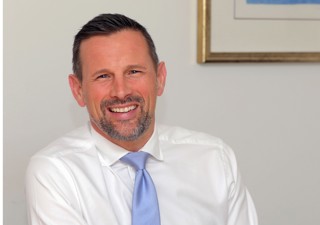Cost reduction has been the maxim of nearly all fleet managers in recent memory, but cost reduction isn’t about simply finding the cheapest supplier, says Venson Automotive Solutions.
Indeed, that approach can often lead to false economies. Instead, Venson claims the real way to achieve actual long lasting savings is to look at improving efficiencies at the same time as reducing unnecessary expenditure in key areas.
The independent leasing and fleet management specialist believes this can be achieved via a number of avenues, and as such is offering tips for fleets on how to maintain or improve that all-important bottom line in 2014.
They include:
Challenge Your Fleet Supplier
There’s no need to fear challenging the established order, in fact shaking things up can be mutually beneficial for both parties, says Venson.
The sign of a genuinely effective fleet supplier is one that works with a fleet manager to ensure their fleet policy is the most appropriate for their needs. In addition, fleet managers must ensure they know about the ‘hidden’ costs from their supplier, such as administration, maintenance, tyres and windscreen recharges.
Review Company Vehicle Policy
Venson suggests that vehicle wholelife costs are one of the least-considered but most important factors when it comes to selecting vehicles for a fleet policy.
It may seem simple but having a fleet supplier that provides information that takes into account all aspects of running a vehicle, including tax, maintenance, fuel and insurance – amongst a number of other factors – means that a fleet manager can take a look at two models with an identical list price but be able to choose the one that is most cost effective for their fleet over the vehicle’s life.
Fuel Costs
This is the big one for all fleets, and rightly so says Venson. However, fuel bills can be tackled with a variety of tactics.
First and foremost is ensuring the vehicles themselves are properly maintained with regular servicing and tyre pressure checks – which alone can add 5% to 10% to a fuel bill if not correct.
Venson suggests that utilising telematics can help in achieving lower fuel costs by educating drivers to take the shortest route possible, avoiding congestion, and not making excessive journeys. Many telematics providers suggest 10% savings can be guaranteed.
Driver Training
Most drivers will feel that they don’t require training, but 22% of crashes are caused by driver inattention or distraction, and a driver who performs a secondary task while at the wheel is up to 3 times more likely to crash.
Venson says that implementing a driver risk assessment program coupled with either classroom or in vehicle training will not only see incident rates fall but with it associated accident costs. Additionally insurers tend to look more kindly on a fleet that has an active driver training program in place.
Salary Sacrifice
An issue that has come to the fore in recent months, as Government changes in tax rates and NIC make salary sacrifice a more attractive option for companies.
But there are other benefits too, says Venson, as Duty of Care to employees and carbon footprint can both be improved by offering a salary sacrifice scheme.
Alan McCleave, business development director for Venson Automotive Services, said: “These tips are just a flavour of what can be achieved if a company works hand in hand with a fleet provider to look at their needs and respond with the appropriate offering.
“It is our core belief at Venson that it is not just about offering a one size fits all solution, but rather working with a fleet manager to help them achieve their financial objectives whilst still running a high-performing fleet.
“Our key advice is know what you are getting from your fleet management company. On the surface some providers can look to be delivering the cheaper option, but then too far down the line companies realise the ‘paper savings’ are not translating into tangible or real savings.”


















Login to comment
Comments
No comments have been made yet.